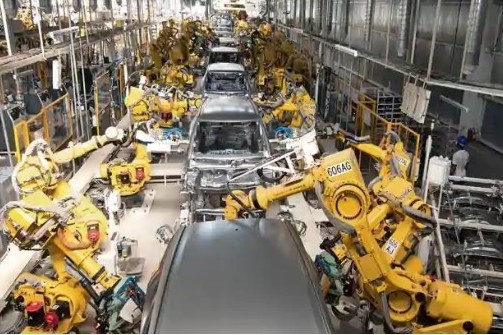Mumbai: The automotive component sector is expected to log minus16 per cent de-growth in revenue this fiscal as the COVID-19 pandemic disrupts the supply chain and impairs underlying vehicle demand in both domestic and overseas markets, according to CRISIL Ratings.
This will add to the pain from an estimated de-growth of 10 per cent in the industry’s revenue to Rs 3.2 lakh crore last fiscal, the rating agency said in its latest report.
The agency’s assessment is based on an analysis of 300 CRISIL-rated automotive component suppliers that account for almost 40 per cent of the sector’s revenue.
The reasons for the decline are not far to seek, CRISIL has said adding that first, the domestic automobile original equipment manufacturers (OEMs), which account for over two-thirds of the sector’s revenue, are staring at a decadal low vehicle sales volume at 169 lakh units this fiscal. The production schedule of the OEMs is expected to remain modest in the first two quarters of the fiscal and will recover only gradually, thereafter.
Additionally, demand growth from exports and the aftermarket, which together account for around one-third of demand, will also remain in the red this year. Muted demand sentiment in major export destinations will dent exports, while lower vehicle usage and closure of automotive servicing workshops during the lockdown will affect aftermarket demand.
“Possibly for the first time in over a decade, we are seeing demand from the OEMs, exports and the aftermarket in the red this fiscal, in addition to demand slowdown for two consecutive years. Ergo, despite cost rationalisation measures and the highly flexible nature of cost structures, with 80 per cent of costs being variable in nature, operating profitability will take a hit of up to 250 basis points (bps) for the rated portfolio. The impact on absolute operating profit will be almost 30-35 per cent. This will add to the decline seen last fiscal, and impact cash flows,” said Anuj Sethi, senior director, CRISIL Ratings.
Meanwhile, the credit ratio — the ratio of rating upgrades to downgrades — for CRISIL’s automotive components portfolio had already declined to 0.8 time in fiscal 2020 even before the onset of Covid-19. This was the lowest in the last six years and can be attributed to the tepid demand scenario and some postponement of domestic demand due to preference for BS-VI compliant vehicles.
In fiscal 2021, too, the credit outlook for the industry is expected to remain moderately negative as the pandemic compounds slowdown woes.
According to Sameer Charania, Director, CRISIL Ratings, “The only silver lining is the sector’s prudent financial practices with respect to capital spending over the past few years, leading to well managed balance sheets. The average gearing for CRISIL’s sample set remains adequate at less than one time, and is expected to remain under control due to only need based capital spending and a modest stretch in working capital.”
Firms with component concentration to commercial vehicles and those which have undertaken large debt-funded expansion in recent times will be more vulnerable than more-diversified ones.
While the Reserve Bank of India’s moratorium on debt obligations for firms, and steps initiated to provide funding to micro, small and medium enterprises (including smaller Tier II and Tier III suppliers) may help overcome temporary cash-flow mismatches, recovery in demand, which is expected in the next fiscal, is critical for sustained improvement in the sector’ s financial health.
(IANS)
